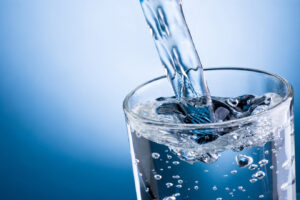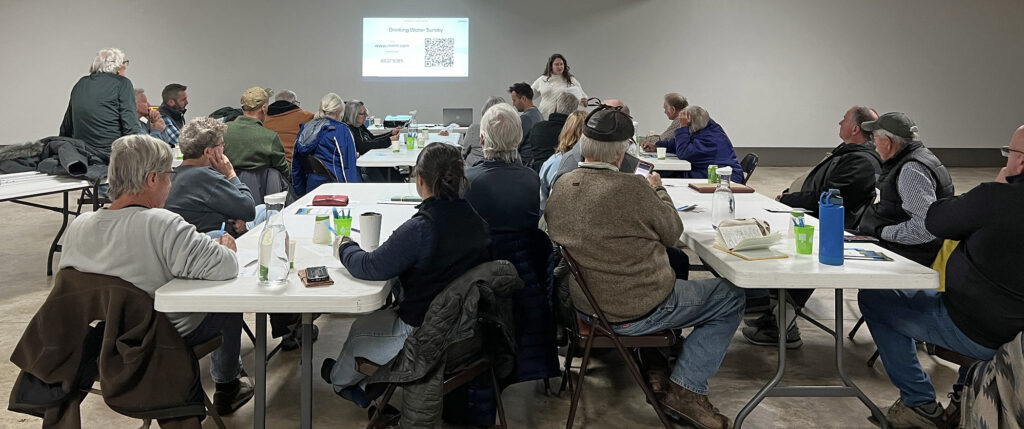Focus groups and community meetings gather input on drinking water governance
 The Minnesota Department of Health (MDH) is currently developing a 10-year drinking water plan to better manage drinking water in Minnesota, and Freshwater is playing a key role in engaging water professionals and the broader statewide community. This plan is intended to serve every Minnesotan, solidify the State’s commitment to protect drinking water against emerging threats, and it will incorporate expertise and robust feedback from diverse perspectives. The plan will help guide future policies and inform future programs designed to protect drinking water throughout the state.
The Minnesota Department of Health (MDH) is currently developing a 10-year drinking water plan to better manage drinking water in Minnesota, and Freshwater is playing a key role in engaging water professionals and the broader statewide community. This plan is intended to serve every Minnesotan, solidify the State’s commitment to protect drinking water against emerging threats, and it will incorporate expertise and robust feedback from diverse perspectives. The plan will help guide future policies and inform future programs designed to protect drinking water throughout the state.
“It’s projects like these that lean into Freshwater’s ability to span across groups and build trust between government and community," said Chyann Erickson, Freshwater program coordinator. "We are deeply grateful to be a part of this work that ensures good drinking water governance across the state, affecting both consumers and managers.”
Phase 1: Engaging water professionals
In the months of April and May 2023, Freshwater worked with the MDH, University of Minnesota’s Water Resources Center, the Humphrey School of Public Affairs and Clean River Partners to host a series of focus groups centered around drinking water management and governance. Those invited to attend were drinking water professionals from across the state, representing local, tribal, state and federal governments; nonprofit water organizations; water advocacy groups; water utility providers; academics; and private water engineering firms and labs.
During the focus groups, we had attendees reflect on 12 distinct good governance criteria as they relate to drinking water management in Minnesota. The criteria statements touch on the efficiency, effectiveness, and trustworthiness of drinking water management and governance. The intent was to better understand from attendees what is working well across the 12 criteria, what is not working well, and what actions might be taken to improve effectiveness, efficiency, and trustworthiness of drinking water governance in Minnesota moving forward.
The team facilitated a total of four focus groups – two in-person and two virtual – with 34 water professionals participating. Attendees were engaged through interactive online tools and small group discussions to work through the twelve criteria and provide their feedback.
Freshwater took all the comments and notes from these focus groups and, after analyzing and synthesizing the information, contributed to a report entitled, Lessons from Drinking Water Professionals: An Assessment of Drinking Water Governance in Minnesota. MDH will use this report to help inform the state drinking water plan.
Phase 2: Engaging the community
While these initial focus groups were composed of water professionals, an additional effort is underway to get input from the broader community in the second phase of this work. This phase is being led by Clean River Partners, with support from Freshwater.

Throughout December and January, Clean River Partners and Freshwater will be traveling around Minnesota to hold community conversations to gain public and tribal perceptions of drinking water management. Through a variety of surveys, the goal of these conversations is to help MDH better understand where the gaps and issues are with drinking water in Minnesota on the consumer side.
These community meetings include informational presentations on local drinking water supply, surveys to understand drinking water habits for the area, the community’s level of trust in MDH drinking water quality management, and an opportunity to provide MDH with very specific feedback on their performance. These questions prompt the public to comment on what they’d like the to see included in the forthcoming drinking water plan and how the plan can best serve them as consumers, whether they receive their drinking water from private wells or a public drinking water supply. Community attendees will also receive information to take home along with contact information for their local water supply managers.
The first of these meetings took place in Saint Paul on November 30, followed by meetings in Lewiston and Austin on December 4 and 5, respectively. The next meeting is Friday, December 15 in Little Falls. Check out the Clean River Partners community event calendar to see if there is a meeting happening near you. Following the conclusion of these meetings in January, Clean River Partners and Freshwater will draft a report for MDH summarizing community feedback from around the state.